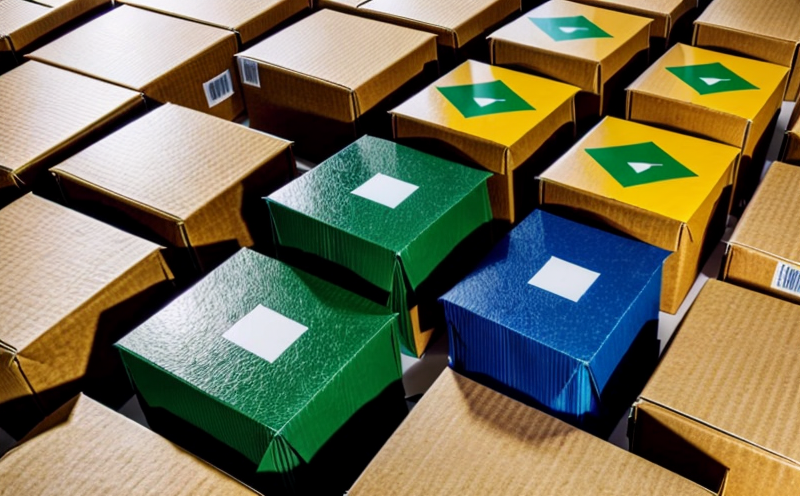Migration testing for sustainable packaging materials
The Future of Sustainable Packaging Unlocking the Power of Migration Testing
In todays fast-paced business landscape, companies are under increasing pressure to prioritize sustainability and environmental responsibility. One crucial aspect of achieving this goal is ensuring that packaging materials meet rigorous safety standards while minimizing their ecological footprint. This is where migration testing for sustainable packaging materials comes in a vital laboratory service that empowers businesses to make informed decisions about the products they produce.
What is Migration Testing for Sustainable Packaging Materials?
Migration testing, also known as migration studies or leaching tests, evaluates the transfer of chemicals from packaging materials into food, pharmaceuticals, and other products. This process involves exposing a packaged product to various conditions, such as heat, humidity, and time, to simulate real-world usage scenarios. The test then measures the amount of chemicals that have migrated from the packaging material into the product.
At Eurolab, our expert team specializes in conducting comprehensive migration testing for sustainable packaging materials. By choosing us for your laboratory needs, you can rest assured that your products are meeting or exceeding regulatory requirements while minimizing the environmental impact of your packaging.
Why is Migration Testing Essential for Businesses?
Incorporating migration testing into your product development and quality control processes offers numerous benefits for businesses seeking to adopt sustainable packaging practices. Some key advantages include
Regulatory Compliance Ensure that your products meet or exceed regulatory requirements, such as the EUs Food Contact Materials (FCM) regulations and the US FDAs Packaging Regulations.
Reduced Risk of Contamination Identify potential sources of contamination and minimize the risk of product recalls due to migration-related issues.
Cost Savings Avoid costly re-formulation or re-design efforts by identifying and addressing migration-related problems early on in the development process.
Improved Product Quality Enhance product safety, shelf life, and overall performance through informed material selection and formulation.
Increased Brand Credibility Demonstrate a commitment to sustainability and environmental responsibility, boosting customer trust and loyalty.
Benefits of Migration Testing for Sustainable Packaging Materials
In addition to the general benefits mentioned above, migration testing specifically designed for sustainable packaging materials offers several unique advantages
Material Selection Identify suitable packaging materials that meet regulatory requirements while minimizing environmental impact.
Reduced Chemical Usage Optimize material formulations to reduce chemical usage and minimize waste generation.
Increased Material Reuse Extend the shelf life of packaging materials through informed design and material selection, reducing waste disposal costs.
Improved Supply Chain Transparency Enhance supply chain visibility by verifying compliance with regulations and standards.
Competitive Advantage Stay ahead of competitors by leveraging migration testing to create innovative, sustainable products that meet evolving consumer demands.
QA Migration Testing for Sustainable Packaging Materials
We understand that you may have questions about our migration testing services. Below are some frequently asked questions and answers
Q What types of packaging materials can be tested?
A Our team specializes in testing a wide range of packaging materials, including plastics, metals, glass, paper, and cardboard.
Q How do I prepare my products for migration testing?
A Please contact us to discuss the specific requirements for your product and packaging material. We will provide detailed instructions on sample preparation and submission procedures.
Q What regulatory standards do you adhere to?
A Our team is familiar with a variety of regulations, including EU FCM, US FDA Packaging Regulations, and other global standards.
Q How long does migration testing typically take?
A The duration of the test depends on the specific requirements and scope. However, we strive to complete tests within 2-4 weeks.
Conclusion
In todays fast-paced business landscape, prioritizing sustainability and environmental responsibility is crucial for success. By incorporating migration testing into your product development and quality control processes, you can ensure that your products meet or exceed regulatory requirements while minimizing their ecological footprint. At Eurolab, our expert team specializes in conducting comprehensive migration testing for sustainable packaging materials, empowering businesses to make informed decisions about the products they produce.
Dont miss out on this opportunity to future-proof your business and create innovative, sustainable products that meet evolving consumer demands. Choose Eurolab for your laboratory needs today and take the first step towards a more sustainable tomorrow.




